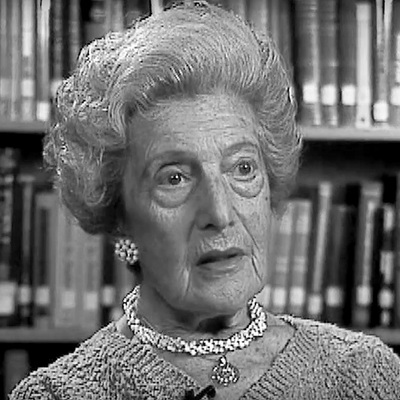“I was fortunate enough to get my family out, but people shouldn’t forget. That it might and can happen anywhere, I feel.”
Tilla Starkand grew up in Witten, Germany, attending schools and living with her two younger siblings. In 1926, she attended school in Dortmund. She noticed Germany beginning to change, and then in 1934, Tilla’s father was taken by the Nazis in the middle of the night to an unknown location. He was gone for several days, and when he returned, he had been badly beaten. He was placed in the hospital, because Tilla’s family felt it was safer for him to stay there than at home.
In 1935, Germans went around the town breaking the glass windows of Jewish businesses and homes. Tilla’s parents’ business windows were completely destroyed, and a Nazi commissioner then told them that they must replace the glass, regardless of the price.
During the same year, Tilla traveled with a friend to Cologne, Germany and noticed “Forbidden for Jews” on many of the businesses, which prevented them from getting coffee or going to the movie theater. During her travels, Tilla met her future husband, a widower, who then proceeded to arrange papers for her and his daughter to travel to Buenos Aires, Argentina.
In 1936, after living in Krefeld, Germany and working as a caretaker for the children of a family there, Tilla traveled to Witten and then on to Hamburg, where she met her fiancée and his daughter. In 1937, Tilla finally left by boat for Buenos Aires, arriving about four weeks later. When she arrived, she received word that her father has been deported and taken to a concentration camp in Oranienburg. Tilla immediately proceeded to try and get papers to have her parents join her in Argentina, but there were new hurdles requiring the service of a lawyer.
In 1939, Tilla’s brother and sister arrived; later on her father and mother came as well, but when the medics came onto the boat, they refused to let her father leave due to an eye infection. Tilla’s father was not returned to Germany, because the war had begun, but he had to stay in the immigration offices until the surgery. Later, they found out the doctor was actually an anti-Semitic German who was misdiagnosing Jews on purpose. In 1940, Tilla’s father was finally released and allowed to reunite with his family. Unfortunately, due to his poor health, Tilla’s father died soon after.

